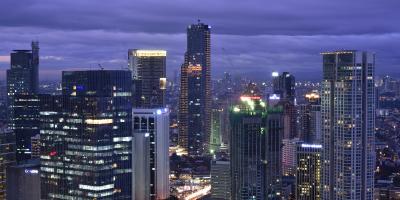
The Philippines has come a long way in combating money laundering over the past decade, making significant progress on reforming its legal and regulatory framework and addressing deficiencies, but it still experiences substantial challenges in dealing with the complex, transnational issues posed by money laundering.
A unique geography – the Philippines is an archipelago of more than 7000 islands – puts the country at a higher risk of being flooded with illicit funds, creating further vulnerabilities in the rule of law, corruption of public officials and ultimately the potential destabilization of economies. Additionally, the Philippines must remain alert to increasing threats from insurgent and transnational terrorist groups that engage in money laundering through ties to organized crime in the southern part of the country.
Mandated to ensure that the Philippines was not used as a money laundering site, the Anti-Money Laundering Council (AMLC) was created in 2001 with a long-term vision of establishing and maintaining an internationally compliant and effective anti-money laundering regime. According to a report by the Asia/Pacific Group on Money Laundering published in October 2019, the understanding of money laundering and terrorist financing risk among stakeholders in the Philippines “varies, but is strongest with the Anti-Money Laundering Council”.
With support from the United States Department of State, IDLO has been assisting the AMLC in its efforts to build institutional and human capacity, and recently carried out specialized legal training for the Council in coordination with other essential agencies involved in the anti-money laundering effort. In October 2019, IDLO organized a training of trainers’ course on trial advocacy for members of the AMLC, the Office of the Ombudsman, the Department of Justice and the Office of the Solicitor General, in Pampanga.
A few months later, in early December 2019, trainers who had taken the course themselves delivered it to their colleagues working in the four government institutions in Manila. After the course, IDLO asked several participants about their personal capacity needs.
One training participant, who handles money laundering and civil forfeiture cases, told IDLO about some of the challenges he faces: “I feel that I have significant knowledge gaps in modern types of money laundering, for instance international transactions or online-based schemes. That is generally the trajectory that modern day money launderers will take.”
Another participant, a legal officer at the AMLC Secretariat, added: “One of the most critical training needs right now is trial advocacy for legal officers. Some lawyers in the AMLC Secretariat, especially new ones, have little or no experience in trial advocacy and litigation. Experience in trial advocacy is vital in the Legal and Evaluation Group because the group handles cases filed in court and with prosecuting agencies of the government.”
“Since we mainly handle prosecution of cases, it is of great help to have a training on trial advocacy targeted at highly technical subjects like financial transactions, electronic evidence, expert witnesses, as well as recent issuances by the Supreme Court,” underlined an assistant special prosecutor for the Office of the Ombudsman. “Likewise, it is useful to have trainings on subject matters that are mostly integrated in the cases we handle, such as government budget and accounting procedures, different auditing process, financial investigations and information writing.”
The Philippines joined IDLO in 1989 as one of its founding Member Parties and hosted IDLO’s first regional training office in Manila in the 1990s. Since 2016, IDLO has worked closely with justice institutions in the Philippines and has been providing support to develop the capacity of prosecutors to better handle criminal prosecution and corruption cases.
Photo copyright: Flickr / Sumarie Slabber

